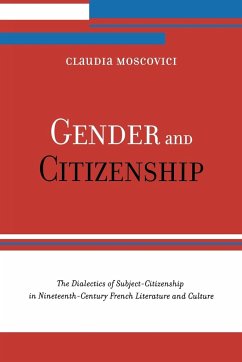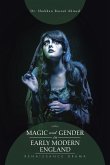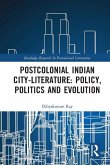Moscovici proposes a new understanding of how gender relations were reformulated by both male and female writers in nineteenth-century France. She analyzes the different versions of gendered citizenship elaborated by Friedrich Hegel, George Sand, Honore de Balzac, Auguste Comte and Herculine Barbin revealing a shift from a single dialectical (or male-centered) definition of citizenship to a double dialectical (or bi-gendered) one in which each sex plays an important role in subject-citizenship and is defined as the negation of the other sex. Moscovici further argues that a double dialectical pattern of androgyny endows women with a (relational) cultural identity that secures their paradoxical roles as both representatives and outsiders to subject-citizenship in nineteenth-century French society and culture.
Hinweis: Dieser Artikel kann nur an eine deutsche Lieferadresse ausgeliefert werden.
Hinweis: Dieser Artikel kann nur an eine deutsche Lieferadresse ausgeliefert werden.








